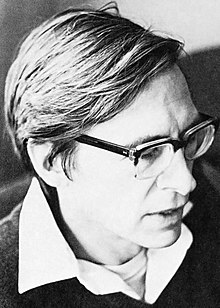Portal:Liberalism
The Liberalism portal
Liberalism is a political and moral philosophy based on the rights of the individual, liberty, consent of the governed, political equality, the right to private property and equality before the law. Liberals espouse various and often mutually warring views depending on their understanding of these principles but generally support private property, market economies, individual rights (including civil rights and human rights), liberal democracy, secularism, rule of law, economic and political freedom, freedom of speech, freedom of the press, freedom of assembly, and freedom of religion. Liberalism is frequently cited as the dominant ideology of modern history.
Liberalism became a distinct movement in the Age of Enlightenment, gaining popularity among Western philosophers and economists. Liberalism sought to replace the norms of hereditary privilege, state religion, absolute monarchy, the divine right of kings and traditional conservatism with representative democracy, rule of law, and equality under the law. Liberals also ended mercantilist policies, royal monopolies, and other trade barriers, instead promoting free trade and marketization. Philosopher John Locke is often credited with founding liberalism as a distinct tradition based on the social contract, arguing that each man has a natural right to life, liberty and property, and governments must not violate these rights. While the British liberal tradition has emphasized expanding democracy, French liberalism has emphasized rejecting authoritarianism and is linked to nation-building. (Full article...)
Selected article -
Modern liberalism, often referred to simply as liberalism, is the dominant version of liberalism in the United States. It combines ideas of civil liberty and equality with support for social justice and a mixed economy. Modern liberalism is one of two major political ideologies in the United States, with the other being conservatism. According to American philosopher Ian Adams, all major American parties are "liberal and always have been. Essentially they espouse classical liberalism, that is a form of democratized Whig constitutionalism plus the free market. The point of difference comes with the influence of social liberalism."
Economically, modern liberalism supports government regulation on private industry, opposes corporate monopolies, and supports labor rights. Its fiscal policy opposes any reduction in spending on the social safety net, while simultaneously promoting income-proportional tax reform policies to reduce deficits. It calls for active government involvement in other social and economic matters such as reducing economic inequality, increasing diversity, expanding access to education and healthcare, regulating economic activity, and environmentalism. Modern liberalism was formed in the 20th century in response to the Great Depression. Major examples of modern liberal policy programs include the New Deal, the Fair Deal, the New Frontier, the Great Society, the Affordable Care Act, and the Inflation Reduction Act. (Full article...)
Selected biography -
John Bordley Rawls (/rɔːlz/; February 21, 1921 – November 24, 2002) was an American moral, legal and political philosopher in the modern liberal tradition. Rawls has been described as one of the most influential political philosophers of the 20th century.
In 1990, Will Kymlicka wrote in his introduction to the field that "it is generally accepted that the recent rebirth of normative political philosophy began with the publication of John Rawls's A Theory of Justice in 1971". Rawls's theory of "justice as fairness" recommends equal basic liberties, equality of opportunity, and facilitating the maximum benefit to the least advantaged members of society in any case where inequalities may occur. Rawls's argument for these principles of social justice uses a thought experiment called the "original position", in which people deliberately select what kind of society they would choose to live in if they did not know which social position they would personally occupy. In his later work Political Liberalism (1993), Rawls turned to the question of how political power could be made legitimate given reasonable disagreement about the nature of the good life. (Full article...)
List of selected biographies
|
|---|
Selected quote
General images
Subcategories
Related portals
WikiProjects
Topics
Recognized content
Associated Wikimedia
The following Wikimedia Foundation sister projects provide more on this subject:
-
Commons
Free media repository -
Wikibooks
Free textbooks and manuals -
Wikidata
Free knowledge base -
Wikinews
Free-content news -
Wikiquote
Collection of quotations -
Wikisource
Free-content library -
Wikiversity
Free learning tools -
Wiktionary
Dictionary and thesaurus




























































